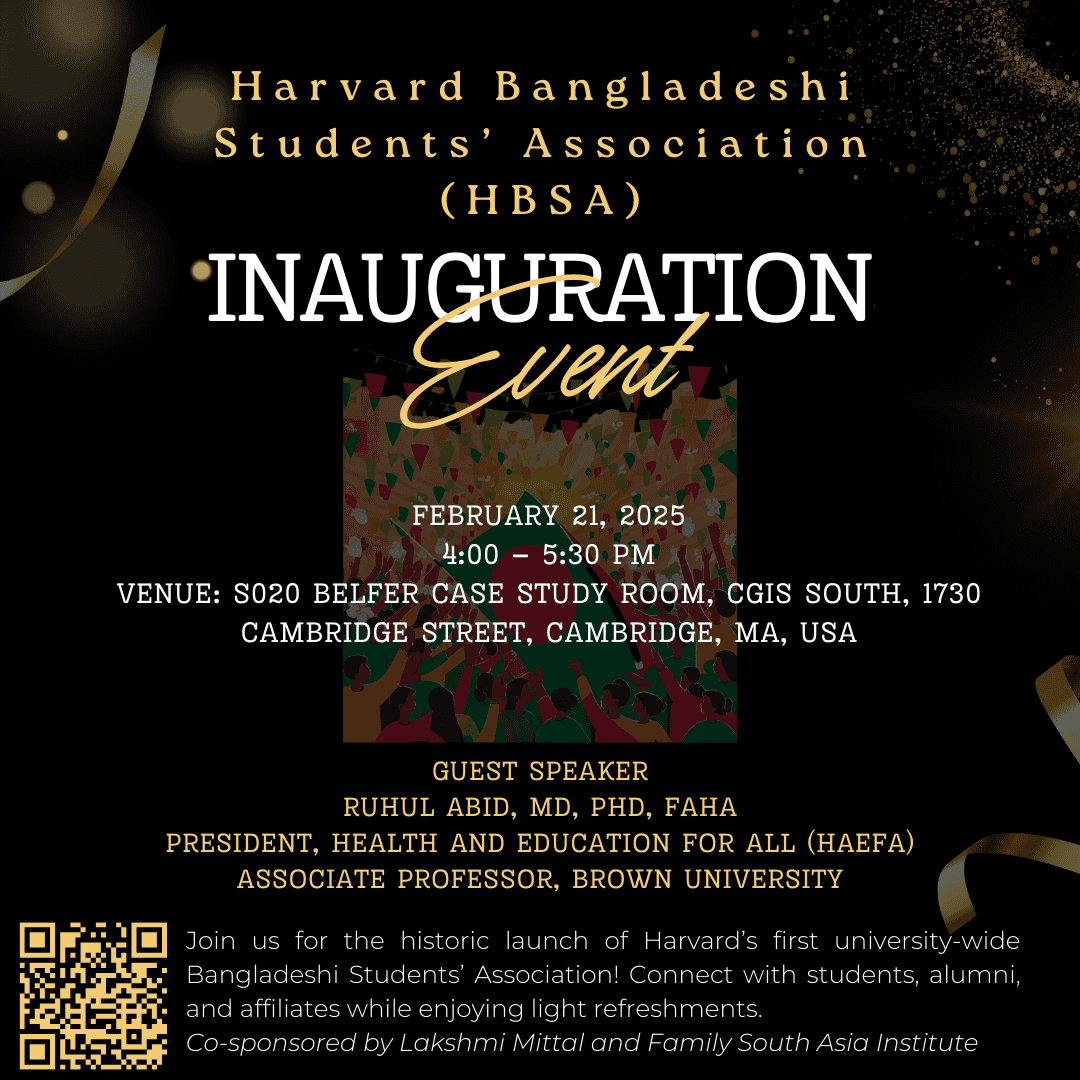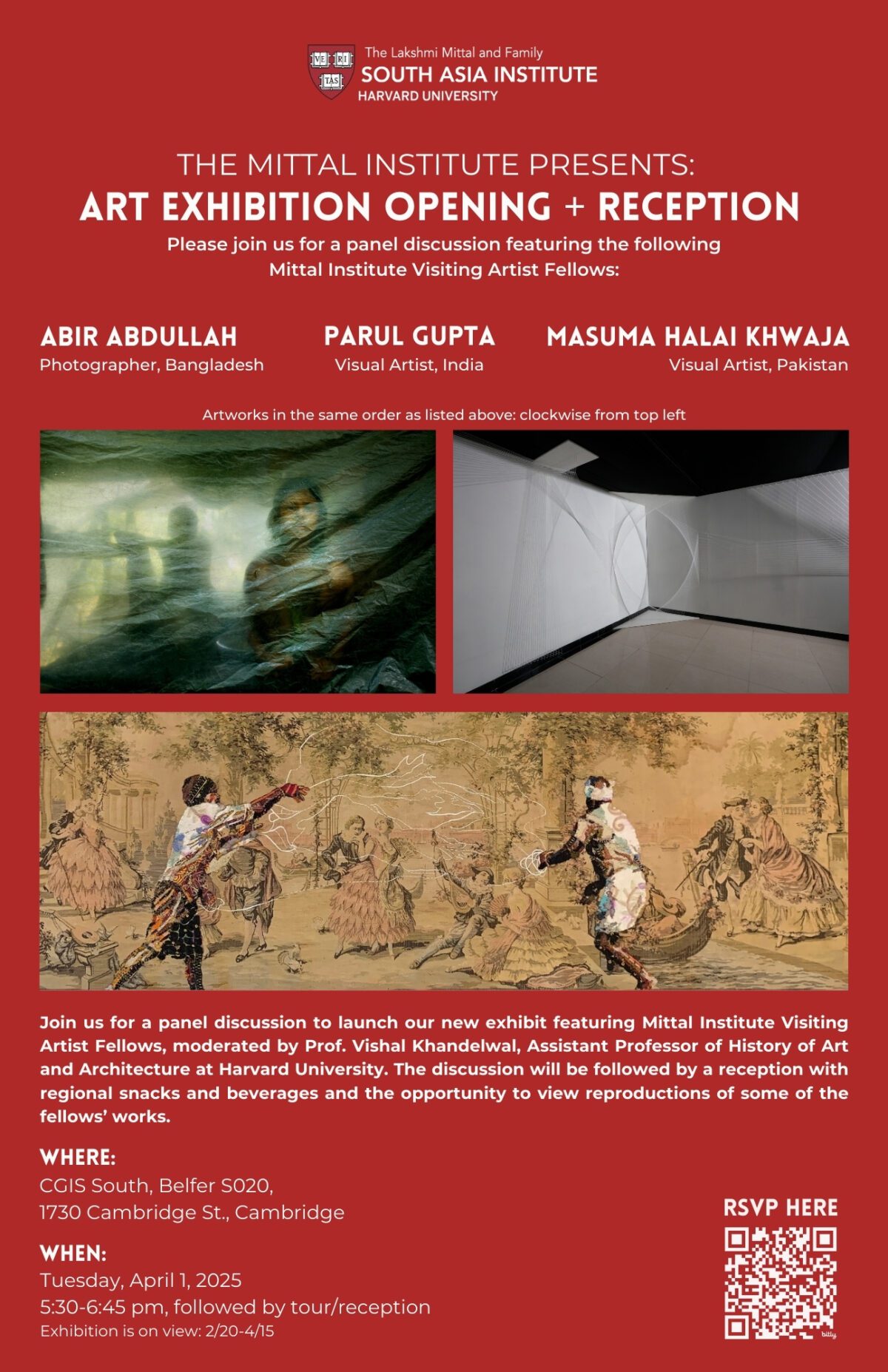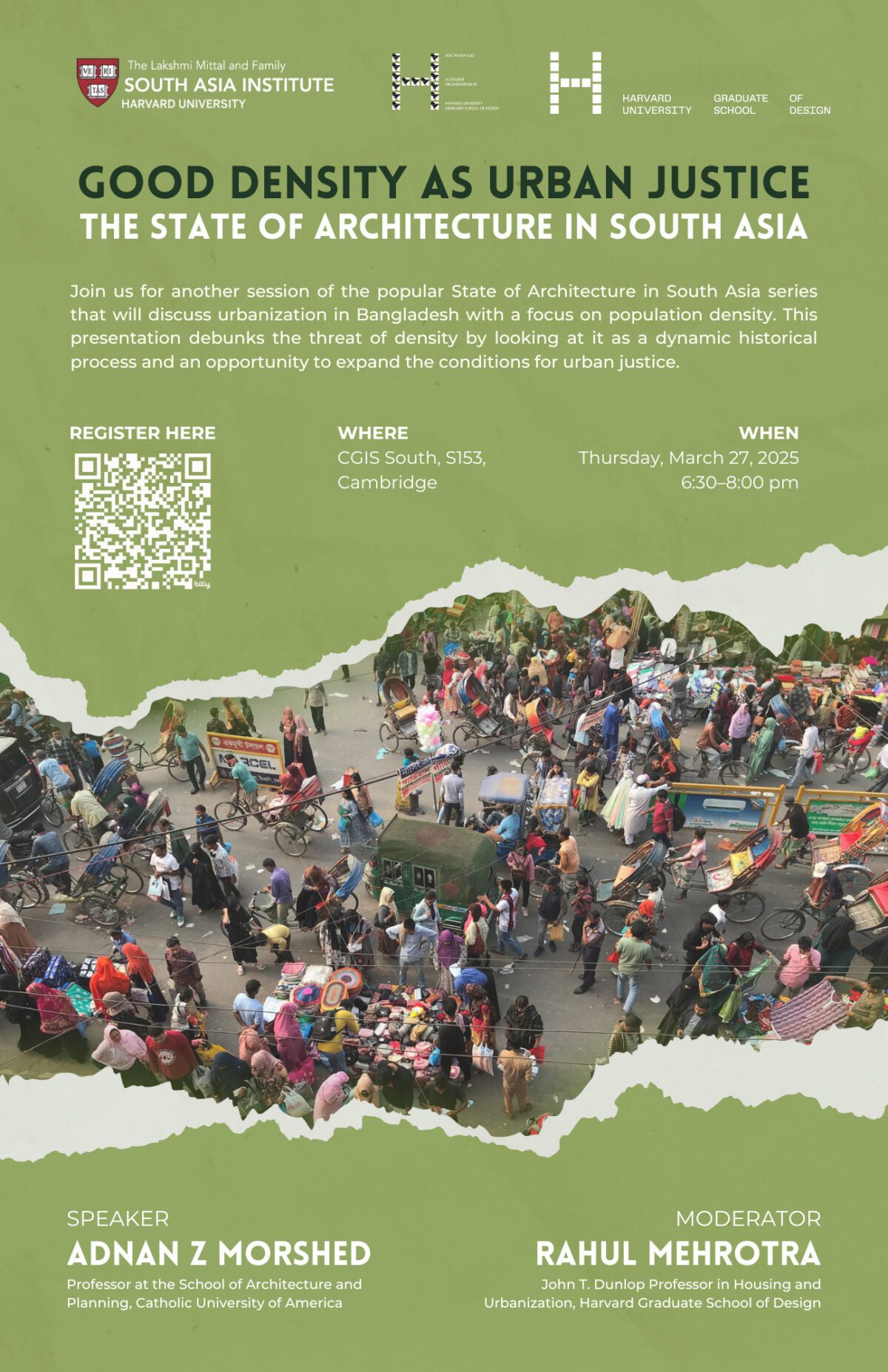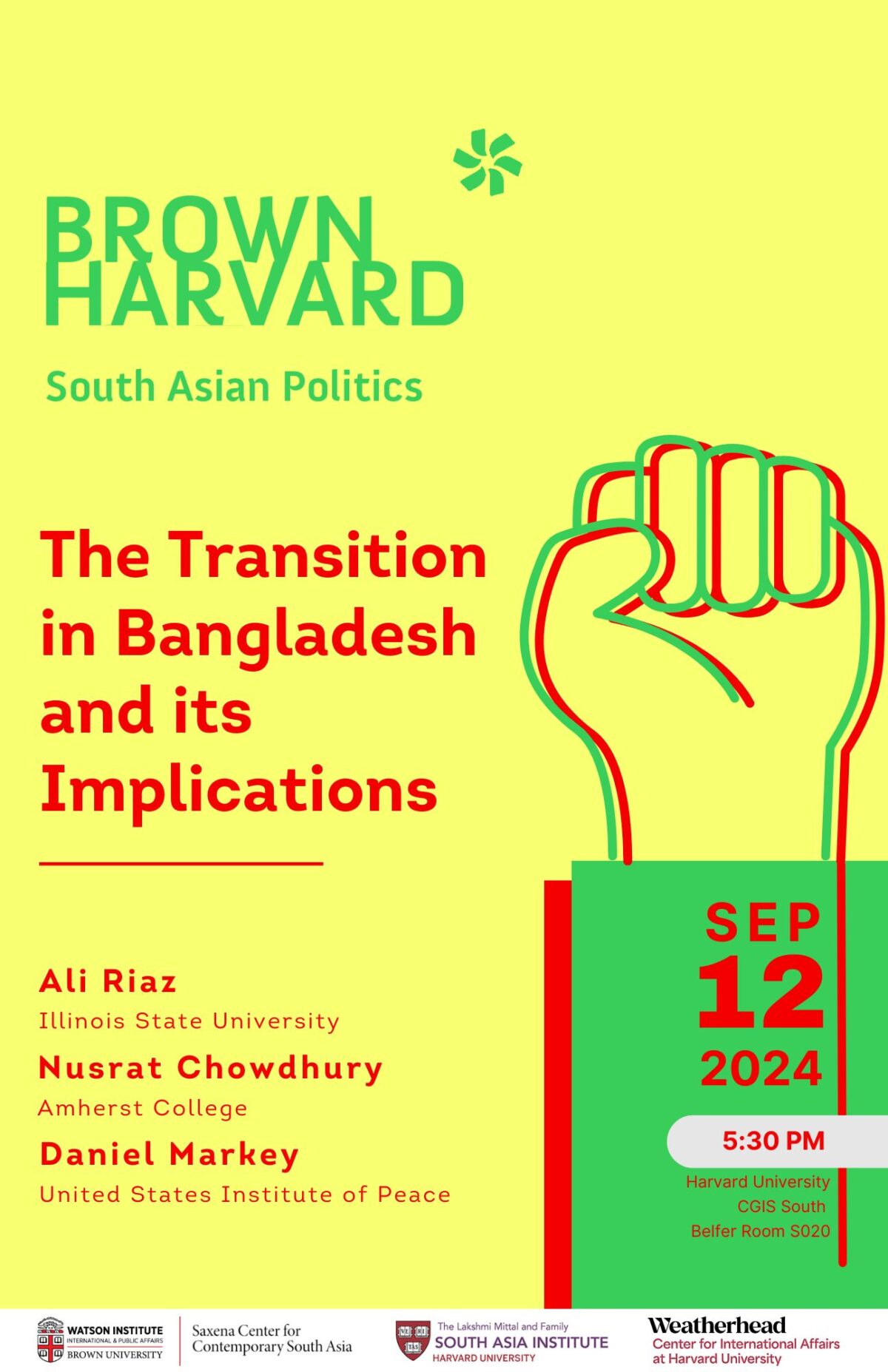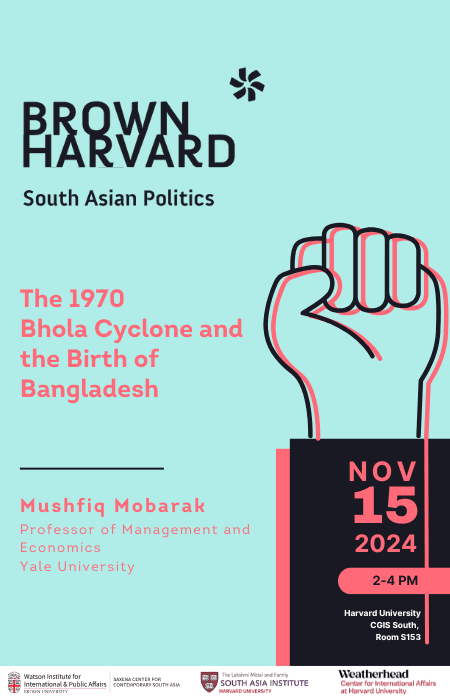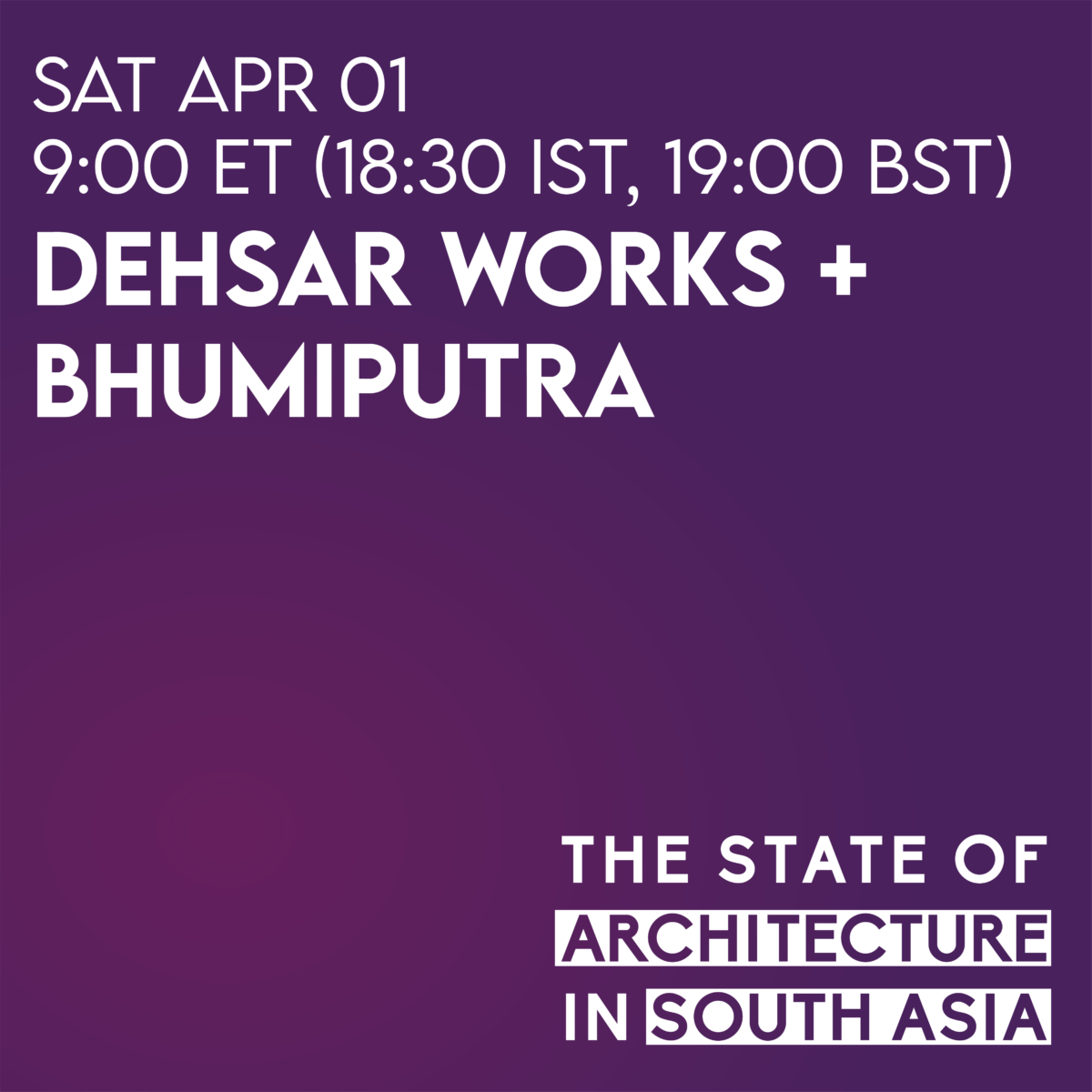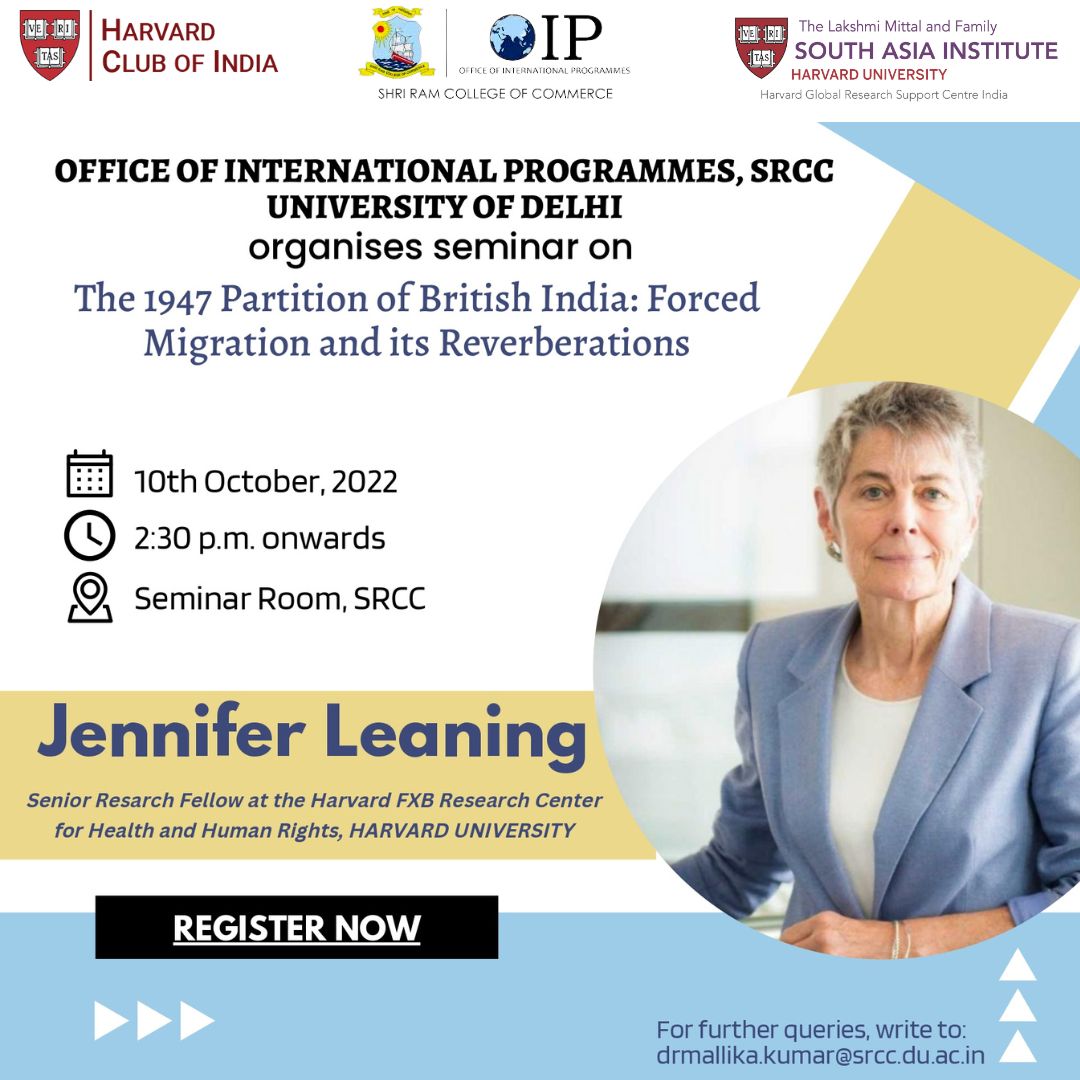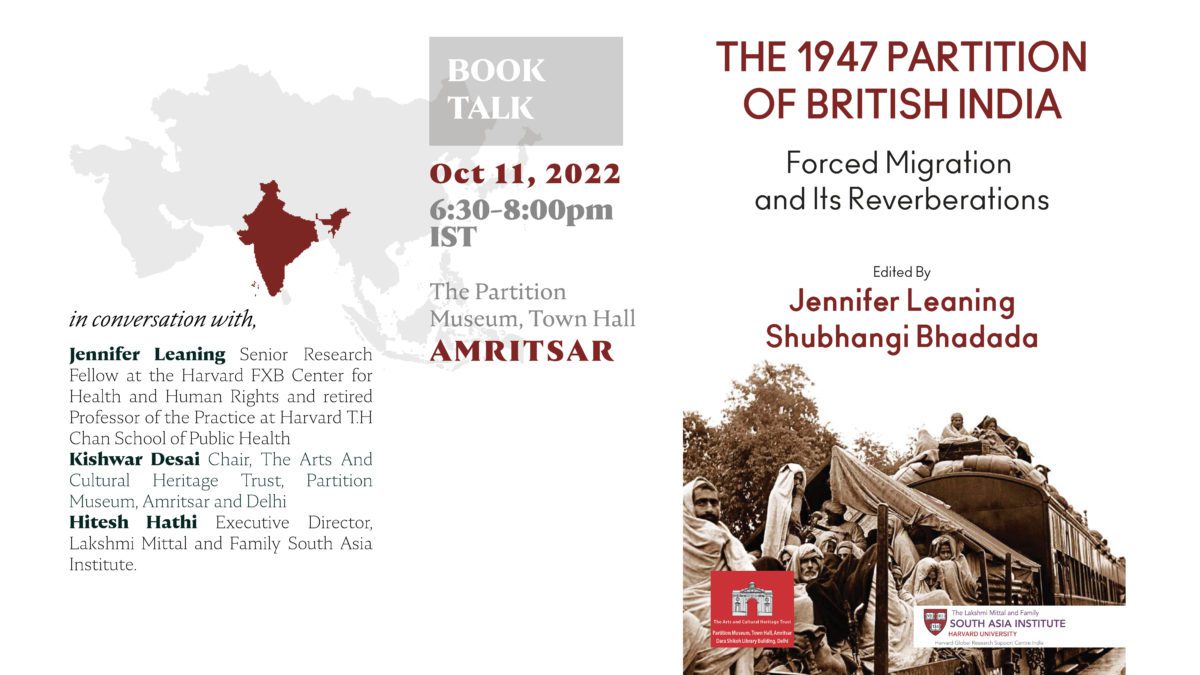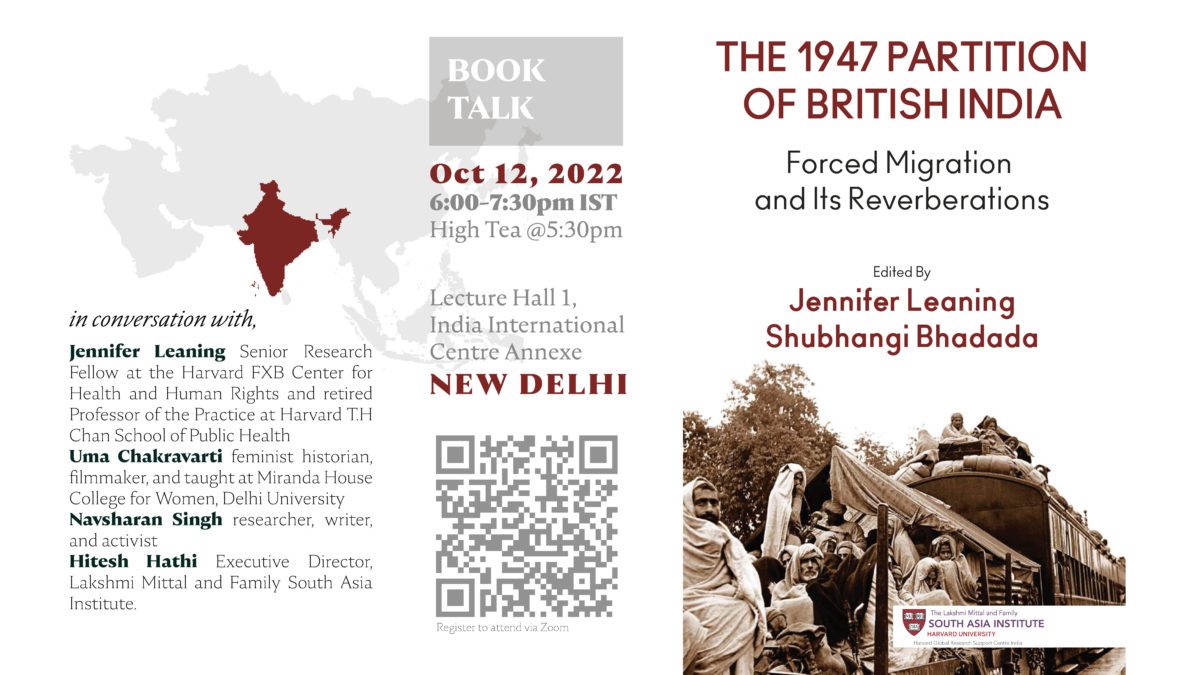WHEN
Fri, Feb 21, 2025 from 04:00pm — 05:30pm, ET
Join us for the historic launch of Harvard’s first university-wide Bangladeshi Students’ Association! Connect with students, alumni, and affiliates while enjoying light refreshments.
More InfoWHEN
Tue, Apr 1, 2025 from 05:30pm — 06:45pm, ET
Please join us for a panel discussion to launch our new exhibit featuring Mittal Institute Visiting Artist Fellows Parul Gupta, Masuma Halai Khwaja, and Abir Abdullah, moderated by Prof. Vishal Khandelwal, Assistant Professor of History of Art and Architecture at Harvard University.
More InfoWHEN
Thu, Mar 27, 2025 from 06:30pm — 08:00pm, ET
Join us for another session of the popular State of Architecture in South Asia series that will discuss urbanization in Bangladesh with a focus on population density.
More InfoWHEN
Thu, Sep 12, 2024 from 05:30pm — 07:00pm, ET
Join us for an in-person panel discussion on “The Transition in Bangladesh and its Implications.”
More InfoWHEN
Fri, Nov 15, 2024 from 02:00pm — 04:00pm, ET
Join us for a Brown-Harvard Joint Seminar on South Asian Politics with Mushfiq Mobarak, Professor of Economics at Yale University.
More InfoWHEN
Sat, Apr 1, 2023 at 09:00am, ET
Emergent Practices in South Asia #11 | Bhumiputra, India & Dehsar Works, Bangladesh 9:00 am EST I 18:30 pm IST I 19:00 pm IST Register to attend via Zoom “Emergent Practices in South Asia” will convene young practitioners that have displayed rigorous engagement in the making of architecture, landscape, and interventions in the public realm in […]
More InfoWHEN
Sat, Feb 18, 2023 at 09:00am, ET
Emergent Practices in South Asia #9 | Coalesce, Pakistan & Paraa, Bangladesh 9:00 am EST I 7:00 pm PKT | 7:30 pm IST | 8:00 pm BST Register to attend via Zoom “Emergent Practices in South Asia” will convene young practitioners that have displayed rigorous engagement in the making of architecture, landscape, and interventions in the […]
More InfoVENUE
Shri Ram College of Commerce, University of Delhi
Office of International Programmes, SRCC, University of Delhi presents a seminar on: The 1947 Partition of British India: Forced Migration and its Reverberations Monday 10th October 2022 | 2.30 PM IST onwards Venue: Seminar Room, Sri Ram College of Commerce (map) Register to attend in person With Professor Jennifer Leaning, Senior Research Fellow […]
More InfoVENUE
The Partition Museum, Town Hall, Amritsar
Amritsar, India event: The 1947 Partition of British India remains the largest instance of forced migration in the recorded human history. Over 75 years on, the partition continues to be central to modern identity in the Indian subcontinent. Etched painfully onto regional consciousness, it influences how the people and states of postcolonial South Asia envisage their past, present, and future.
More InfoVENUE
Acad Block A-4, Lahore University of Management Sciences, Pakistan
Friday, October 14, 2022, 4:30 – 6.00 pm PKT Location: Acad Block A-4, Lahore University of Management Sciences, Pakistan Register here to attend the event The 1947 Partition of British India remains the largest instance of forced migration in the recorded human history. Over 75 years on, the partition continues to be central to modern identity in the Indian subcontinent. Etched […]
More InfoVENUE
Lecture Hall 1, India International Centre Annexe, New Delhi
Wednesday, October 12, 2022 | 6.00 – 7.30pm IST (with high tea at 5.30pm) Venue: Lecture Hall 1, India International Centre Annexe, New Delhi Register to attend via Zoom or in-person Stream the event Live on YouTube The 1947 Partition of British India remains the largest instance of forced migration in the recorded human history. Over 75 years on, the […]
More InfoWHEN
Mon, Oct 4, 2021 at 05:30pm, ET
Register for this event Come learn about funding opportunities available to Harvard students interested in South Asia! The Mittal Institute supports undergraduate and graduate students in a wide variety of disciplines with grants for internships, language study, and research. Winter Term applications are due on October 22. Join us on October 4 either in-person at […]
More Info